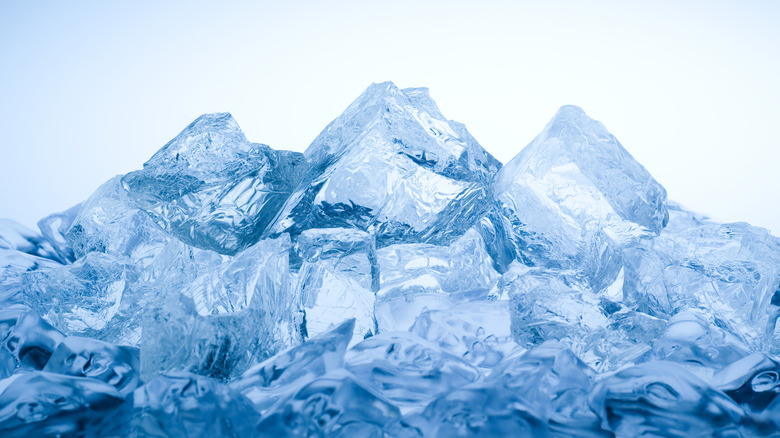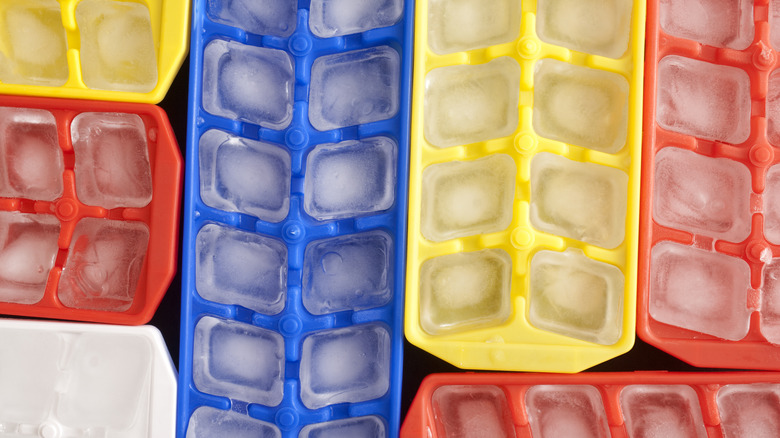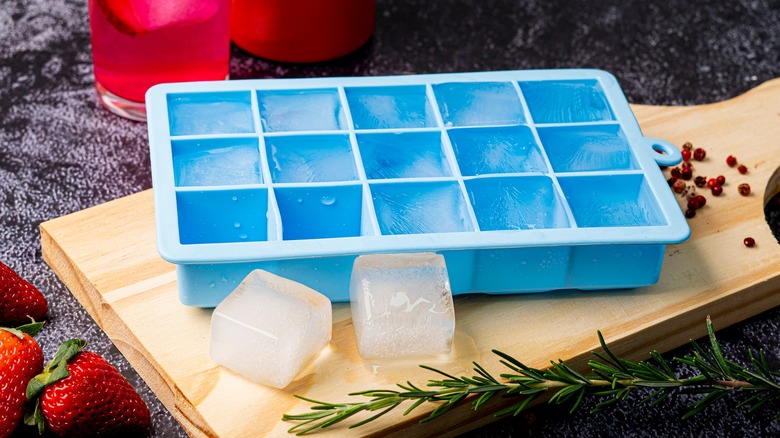How Long Does A Tray Of Ice Cubes Take To Freeze, Really?
Ice: the unsung hero of many a picnic, party, or get-together. While it's easy to overlook ice — it's just frozen water, after all — it does play a crucial role in many culinary applications. Whether you're mixing up a classic cocktail or in need of a refreshing glass of water on a hot day, ice is necessary to bring your beverage together. From being a key element in blanching vegetables to facilitating the creation of homemade ice cream and snow cones, it's hard to overstate the many roles ice plays in the kitchen, and why you should always have a supply of it on hand.
If you're having people over or just trying to combat the hottest parts of the year, it pays to be confident in the amount of ice you have available. Reaching into the freezer to grab a few ice cubes only to be met with nothing or worse a tray full of chilled water is extremely disappointing, especially if it leaves you with a glass of a warm, tepid beverage. Knowing how long ice cubes take to freeze can help you avoid this situation, but considering how long it takes, it still pays to plan ahead.
Ice takes a few hours to freeze
On average, it takes a standard tray of ice cubes about four hours to freeze completely. However, that time can differ greatly depending on a number of factors. For instance, the size and shape of each ice cube can make it freeze much faster or slower. Ice freezes from the outside in, so large cubes with more volume will take longer to freeze than smaller cubes. Small ice cubes can freeze in as little as an hour since more of their total surface area can be affected by the cold all at once. If you had a large sheet of ice that was very flat, it would likely freeze faster than a cube of the same volume because all of it would be exposed to freezing temperatures.
The freezer itself also plays a role in how quickly a tray of ice cubes can become solid. Water freezes at 32 degrees Fahrenheit. Most freezers are set to 0 degrees Fahrenheit, but if your freezer is faulty and can't consistently get to that temperature, it's less likely that your ice will solidify.
Tips to help your ice supply
There are a few things you can do to help ice freeze faster, and to keep your supply plentiful. If you need a tray of ice in a hurry, start by underfilling each section of your ice cube tray. The less water you use, the quicker it will freeze. You should also fill the ice cube tray with either very hot water or very cold water. As physicist Takamasa Takahashi explained to Scientific American, surprisingly both hot water and cold water freeze faster than lukewarm water. Once the ice cube tray is in the freezer, turn the freezer temperature down a few notches, and keep the door shut as you wait. Every time you open the freezer door, it introduces warm air to the ice, slowing down the freezing process, so avoid opening your freezer as much as possible.
To permanently speed up the rate at which your ice freezes, consider investing in a couple of metal ice cube trays. Metal conducts temperature much faster than plastic or silicone, and therefore helps water freeze quickly. Finally, if there's no place to store excess ice in your freezer, keep a heavy-duty resealable plastic freezer bag in there. Every time your ice trays have completed their tasks, empty them into the bag so you can have a supply of ready ice while you freeze more.


